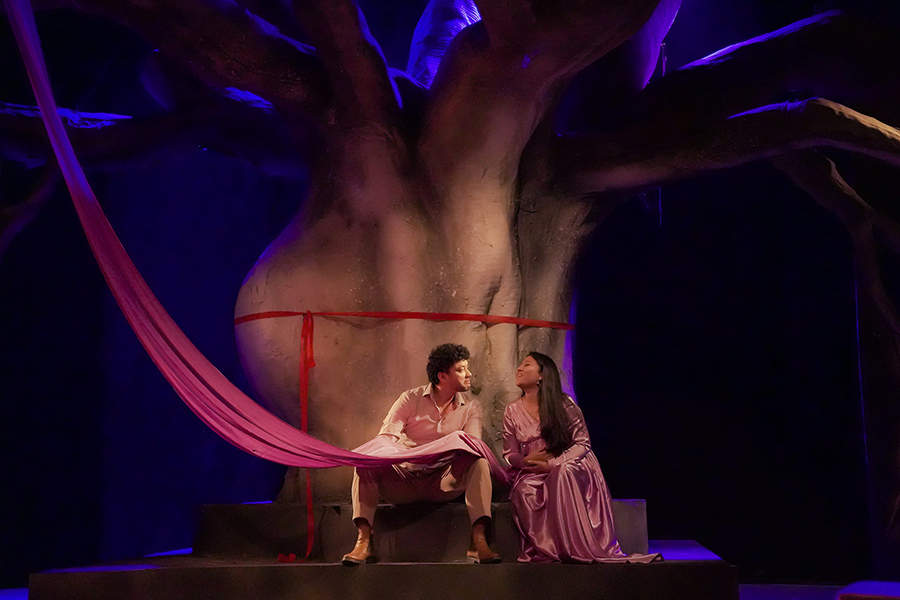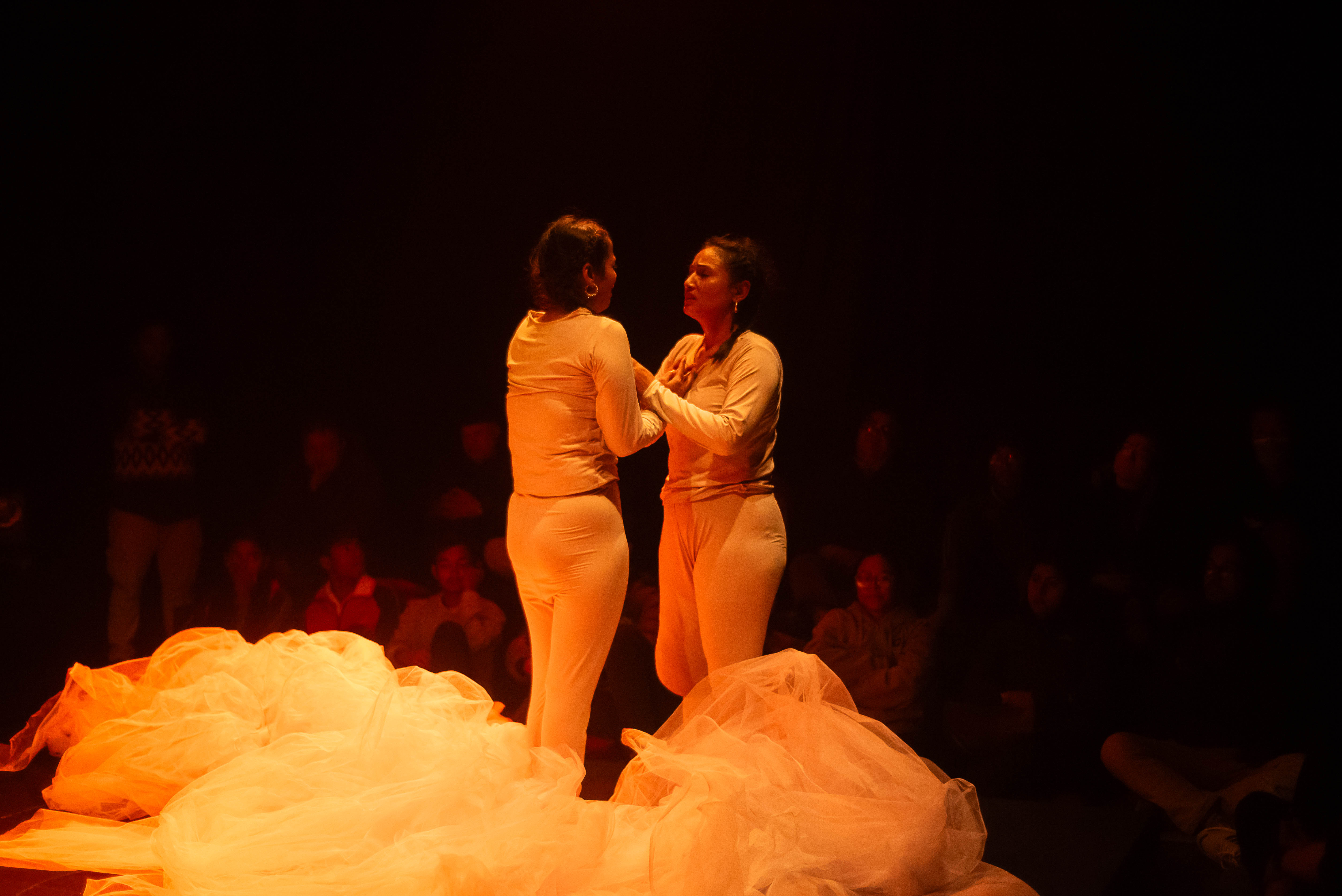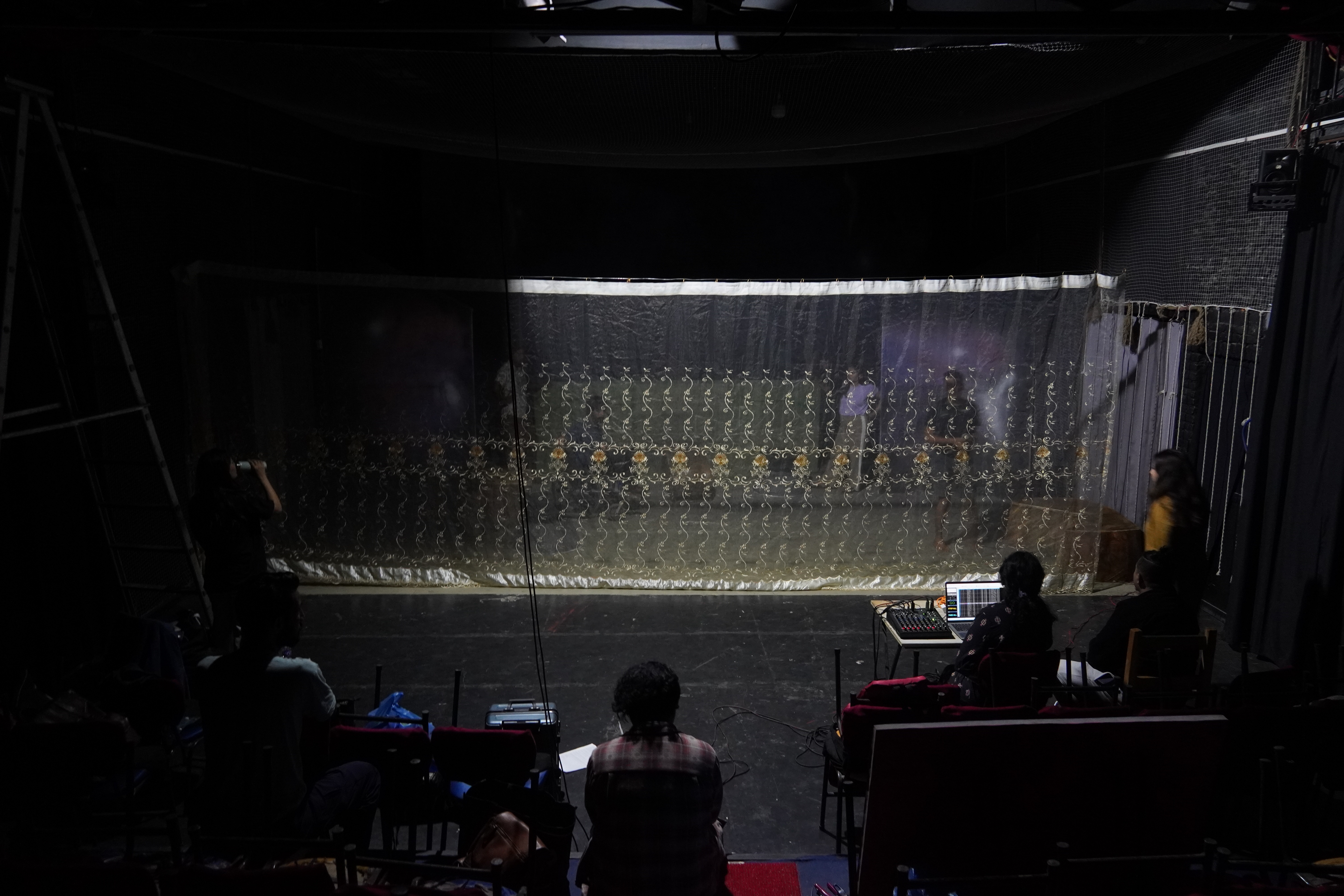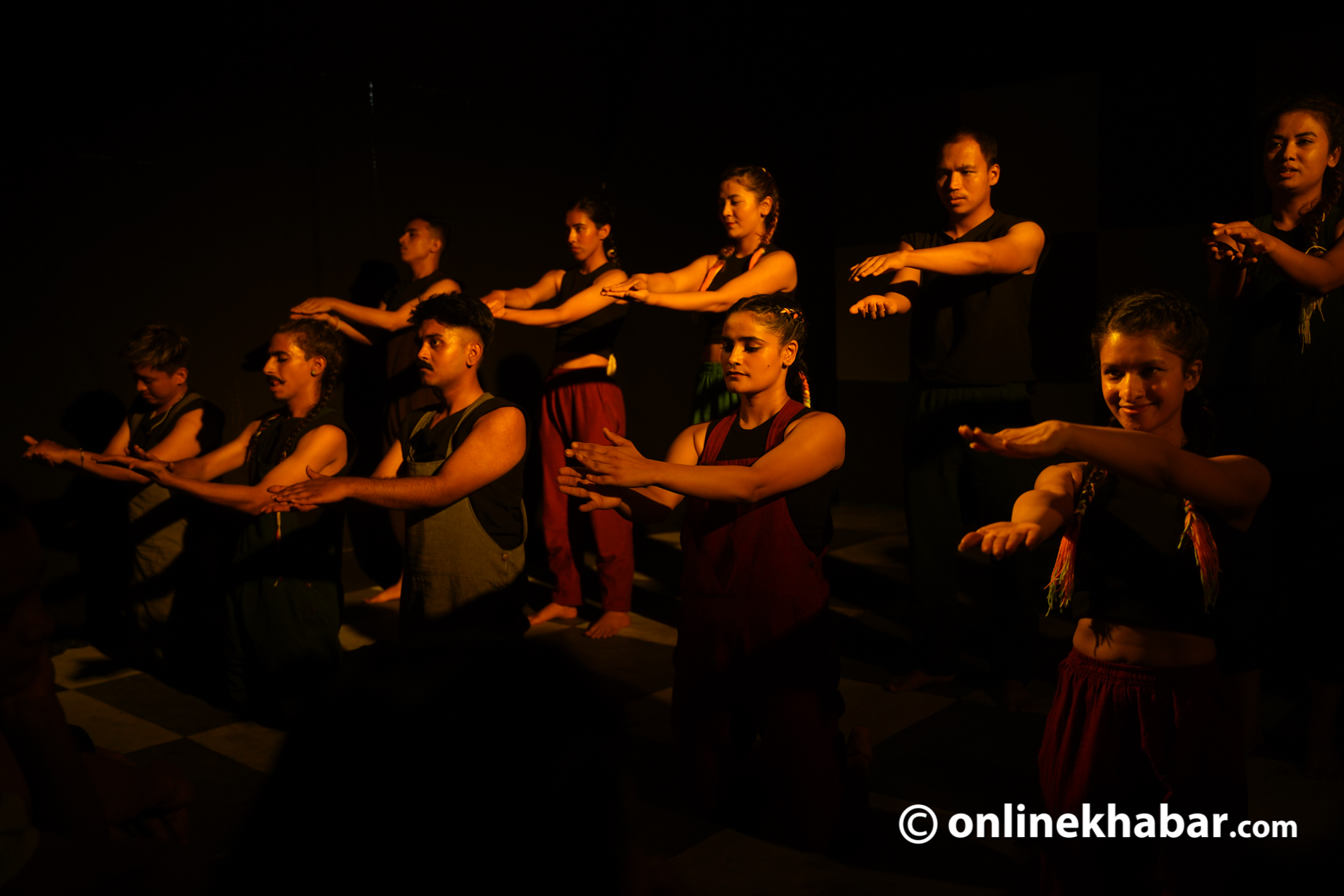
Education is key to development. It is widely acknowledged that for progress to occur, the state must heavily invest in education. Unfortunately, in recent times, the education sector in Nepal seems to have veered off course. Rampant commercialisation in the education sector has led to corruption within the system, casting a shadow over the futures of thousands of young individuals. Concerned students are gathered to stage a protest in Kathmandu against the malpractices plaguing the education system.
It is the day before the protest. All the students are filled with anticipation for tomorrow. Through this protest, the students aim to send a clear message to the state: put an end to the commercialisation of education and regulate educational fees. These concerns are vividly portrayed in Kalo Akshyar Rato Akshyar, an educational play composed by RK Romas and directed by Dilip Khadka.

The play starts with Pink Floyd’s Another Brick in the Wall. The actors are loudly singing its first verse –
“We don’t need no education
We don’t need no thought control
No dark sarcasm in the classroom
Teacher, leave them kids alone.”
Their impassioned performance of the song reflects their deep-seated desire for change within the country’s education sector. They are advocating for free education, increased employment opportunities, and equal access to education for all.
Super subject matter

It is quite uncommon to come across plays that delve into such critical issues. While education constitutes a vital pillar of society, productions that scrutinise the multifaceted aspects of the education sector are relatively scarce. In this light, the creators of Kalo Akshyar Rato Akshyar deserve commendation for their insightful approach.
Conceptualised by Samik Badal, the play challenges the state’s commitment to educational development. It raises crucial questions about why the state appears indifferent to the prevalent issues within the education sector. Additionally, it serves as a cautionary message to the state, emphasising that neglecting the education sector could have far-reaching consequences for the entire nation.
Student leaders and individuals with experience in public colleges will particularly relate to the play, as it vividly portrays the protests and dialogues commonly witnessed in such settings.
One of the best elements of Kalo Akshyar Rato Akshyar is its dialogues. The dialogues are crafted so skillfully that they have the potential to inspire you to contemplate initiating change in the education sector. Additionally, the play highlights the influence wielded by students. It recognises the pivotal role students play in every political movement within the country.
Technically poor

While the play’s strength lies in its subject matter, it falls short in terms of technical execution. In addition to a compelling script, appropriate setting and lighting are crucial for enhancing the overall quality of a play. Unfortunately, the creators of Kalo Akshyar Rato Akshyar seem to have overlooked this aspect. The play’s setting lacks intrigue, lacking elements that capture the audience’s attention.
The setting fails to provide a clear sense of location, leaving the audience uncertain about where the events are unfolding. Moreover, the lighting design lacks charm. The haphazard use of purple light, even in emotional scenes, appears out of place. These elements tend to distract the audience’s focus and diminish the overall engagement with the play. It is hoped that the production team will take these aspects into consideration for future performances.
All the actors have delivered commendable performances, but it is Anup Neupane who truly stands out with his natural and powerful dialogue delivery skills, stealing the spotlight. Despite the play dealing with serious issues, it also features a comedic side, providing ample opportunities for laughter.

Additionally, the play’s live music, including vocals, guitar, ukulele, and percussion, adds an extra layer of captivation. Each song is executed with precision, and the choir, performed by the actors themselves, hits just the right notes.
To sum up, Kalo Akshyar Rato Akshyar can be considered an average play. That said, it might capture the interest of individuals who are relatively new to the theatre scene and have limited exposure to theatrical productions.
Given that the play sheds light on various aspects of the contemporary education sector in the country, it is highly recommended that leaders, students, teachers, policymakers, and other concerned authorities watch it.
The play will run through October 14 every day at 5:15 p.m. except Tuesday, at Shilpee Theatre, Kathmandu. There will be an additional show on Saturday at 1:00 p.m.

























